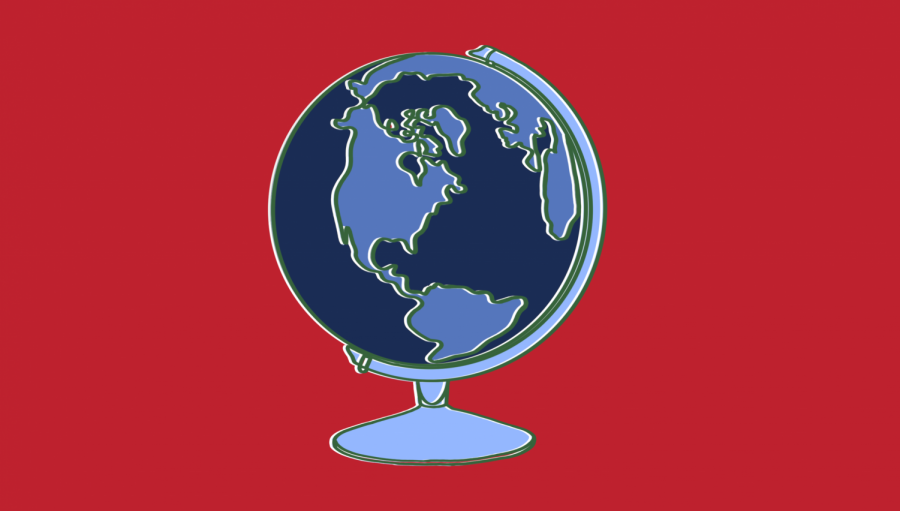Global Recap: Taliban disputes the U.N., German elections uncertainty, Canada’s Green Party Chief resigns
September 29, 2021
There is no shortage of newsworthy topics here in the United States. At times it is easy to get lost in it all, but equally crucial things happen all over the world. They can shed light on political relationships, on humanitarian issues and can keep you up to date on global events.
Here is a quick look at some global events that made the news last week.
Taliban dispute Afghanistan’s U.N. Representative
Afghanistan will not address the General Assembly of the U.N. over a credential dispute, According to CNN.
Afghanistan’s current representative, Ghulam Isaczai, was set to address the assembly on Monday, but the Taliban requested to replace Isaczai with one of their own.
According to the article, the dispute began last week when the Taliban sent a letter to the United Nations saying that Isaczai no longer speaks for the government. Isaczai was the representative for Afghanistan before the Taliban takeover nearly a month ago.
“This does not change the fact that the representative of Afghanistan remains the same,” U.N. Secretary General Spokesman Stéphane Dujarric told CNN.
According to CNN, the Taliban put forth their own representative, Suhail Shaheen, to take Isaczai’s place.
Also in the letter, the Taliban told the world to no longer recognize the past president of the country as he was “ousted.”
The U.N. is using this credential dispute to push for more human rights in the Taliban’s government, according to a similar AP article.
“We have all the requirements needed for recognition of a government,” Shaheen told The Associated Press on Wednesday. “So we hope the U.N., as a neutral world body, recognizes the current government of Afghanistan.”
Uncertainty in German Elections
All parties got less than 30% of the vote leading to no clear path forward for the country of Germany, according to AP News. Talks have begun on forming a coalition government among the parties.
Unlike U.S. elections, the German elections have more than two major political parties. For the U.S. the votes are primarily split between the Democrats and the Republicans.
In this most recent German election, there were six parties that vied for votes.
In this election there was the Social Democratic party (25.7%), the Christian Social Union (24.1%), Greens (14.8%), the Free Democratic party (11.5%), the Alternative for Germany party (10.3%) and the Left (4.9%), according to CNN.
In the same article, it reported that Merkel’s bloc, the Christian Social Union, saw record losses in this election.
Olaf Scholz, the SDP candidate and prospective chancellor, said the CSU should “receive the message from citizens that they should no longer be in government, but go into opposition.”
According to CNN, whoever gets named as the new German chancellor will lead Germany into a new era.
This German election uncertainty in conjunction with the upcoming French election has created some anxiety across the EU, AP reports.
Mali Elections could be delayed after coup
Mali elections could be delayed after the military coup in Aug. 2020, according to a Reuters article.
Back in Aug. 2020, the coup managed to oust the president of Mali. They promised to hold elections on the way back to the democratic process, according to the same article.
The country came under pressure to hold elections by the Economic Community of West African States including the use of potential sanctions on the country among others.
The community gave Mali a timeline to host elections that they set as Feb. 27, 2022.
“The main thing for us is less to stick to Feb. 27 than to hold elections that will not be contested,” Mali’s interim prime minister, Choguel Maiga said in the article.
Maiga mentioned the rumor that the country is close to a deal with a Russian company, the Wagner Group, to help fight Islamic Insurgence.
“We are at the stage of rumours and often even disinformation,” he said. As soon as any deal has been reached he said it will be announced.
Canada’s Green Party Chief Resigns
According to Reuters, Canada’s first black head of a major political party resigned today saying she never truly was allowed to lead.
Annamie Paul, 48, was disheartened when she lost in her own district, Reuters reports. The Green Party of Canada lost a seat in the 388 seat parliament house, this compared to the three seats won last year.
She described her time as head of the party as the “worst period of her life.”
“When I was elected and put in this role, I was breaking a glass ceiling,” Paul told reporters in Toronto. “What I didn’t realize at the time is that I was breaking a glass ceiling that was going to fall on my head.”
According to Reuters, Paul had thought about quitting several times during the campaign but stayed because she wanted to fight for the important causes.
To see the full resignation announcement, click here.
News reporter Michael Crimmins can be reached at [email protected]. Follow him on Twitter @michael_crimm

























